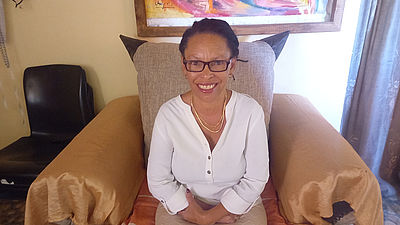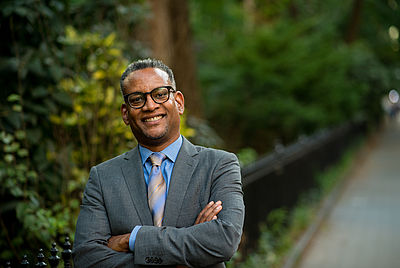#7 (Post)colonial Injustice: Genocide in Namibia and Black Lives Matter
17 November 2021, 6 pm CET
Colonialism continues to shape our current social, economic, and political world order to a substantial degree. In a discussion with prominent human rights advocates at this last event of our series, we will bridge different aspects of a larger struggle, encompassing reparations claims for German colonial crimes in Namibia, the legacy of slavery, unfinished decolonization, as well as the vibrant Black Lives Matter movement in the United States. How can human rights law be used to resist and counteract (post)colonial injustices? How are these movements broadening and intensifying their connections to human rights work and networks?
Throughout the period of its colonial rule, Germany dispossessed the Namibian population, racially oppressed them, and deprived them of their rights. The German genocide committed against the Ovaherero, Nama, and San in Namibia in the beginning of the 20th century killed tens of thousands. However, the German government, in its so-called “reconciliation agreement” with Namibia in June 2021, decided only to acknowledge the acts of genocide as egregious crimes from “today’s perspective,” and thus refused to offer effective remedies and reparations to work toward restorative justice. This illustrates yet again how former colonial powers seek to evade genuine legal responsibility.
In the United States, the Black Lives Matter movement is indivisible from a historical hegemonic complex of (post)colonial crimes, incorporating slavery, imperialism, white supremacy, and structural racism. This history shapes the movement’s foundations and larger vision. At the same time, reparations claims for slavery are still being fought for. To what extent do colonial legacies inform how sustainable models of struggle and strategies of resistance may be devised?
To connect these struggles together from a human rights perspective, Sima Luipert, Deputy Chairperson of the Nama Traditional Leaders of Namibia, Vince Warren, Executive Director of the New York-based Center for Constitutional Rights, and Meena Jagannath, Director of Global Programs at Movement Law Lab based in Florida, will take part in a conversation moderated by Wolfgang Kaleck (ECCHR General Secretary).
Guests

Sima Luipert
Sima Luipert is a development practitioner working in regional and rural development management in Namibia. She is a human rights and social change activist with a background in rural planning and regulation, project management, and community development. She is also chairperson of the Nama Traditional Leaders Association and provides advisory support to Nama leaders.

Vince Warren
Vincent Warren is a leading expert on racial injustice and discriminatory policing and executive director of the Center for Constitutional Rights. Under his leadership, among others CCR has successfully challenged the NYPD’s stop-and-frisk policy and profiling of Muslims, ended long-term solitary confinement at California's Pelican Bay prison, and condemned the torture of prisoners at Abu Ghraib prison.

Meena Jagannath
Meena Jagannath is a movement lawyer with an extensive background in activism and international human rights. She used her legal skills to build the power of movements locally in South Florida around workers’ rights, housing, gentrification, and police brutality and has also supported delegations to the United Nations. Now, she is Director of Global Programs at Movement Law Lab.

Wolfgang Kaleck
Wolfgang Kaleck founded the European Center for Constitutional and Human Rights with other internationally renowned lawyers in Berlin in 2007. As a lawyer, he represents whistleblower Edward Snowden, among others. Kaleck has also published numerous books.
“A comprehensive human rights program involves the actual overthrow of the conditions in which man (and woman) is enslaved by men.” – Wolfgang Kaleck

